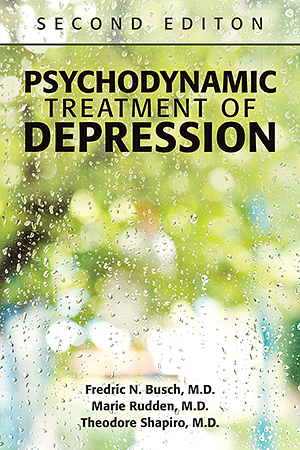Sections
Excerpt
Typically, patients respond to narcissistic injury with angry reactions and fantasies (Jacobson 1971; Rado 1928; Stone 1986). They tend to have difficulty tolerating these aggressive feelings and may deny them. In attempting to approach the reactive anger, it is essential that the therapist take a nonjudgmental stance, because patients are often critical of these feelings and expect a negative reaction from others.
Access content
To read the fulltext, please use one of the options below to sign in or purchase access.- Personal login
- Institutional Login
- Sign in via OpenAthens
- Register for access
-
Please login/register if you wish to pair your device and check access availability.
Not a subscriber?
PsychiatryOnline subscription options offer access to the DSM-5 library, books, journals, CME, and patient resources. This all-in-one virtual library provides psychiatrists and mental health professionals with key resources for diagnosis, treatment, research, and professional development.
Need more help? PsychiatryOnline Customer Service may be reached by emailing [email protected] or by calling 800-368-5777 (in the U.S.) or 703-907-7322 (outside the U.S.).



